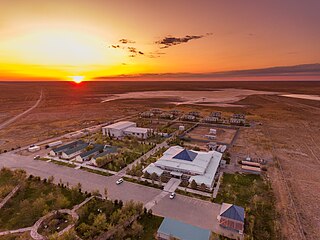Webinar: Economic Outlook for Central Asia and the Caucasus
The American Foreign Policy Council's Central Asia-Caucasus Institute recently hosted a webinar on the region's economic outlook. Dr. Subir Lall from the IMF's Middle East and Central Asia Department and Dr. Mamuka Tsereteli from AFPC discussed economic forecasts for this resource-rich region, home to some of the world's fastest-growing economies. The webinar examined whether Central Asia and the Caucasus can sustain their recent robust growth and what steps countries can take to maintain it.
Watch the full discussion below or on YouTube.
Current Economic Situation
In 2024, Central Asia and the Caucasus experienced stronger levels of growth than predicted. However, inflation remains above central bank targets in several countries, highlighting persistent price pressures. Inflation is most pronounced in Kazakhstan, where levels are expected to remain significantly higher than forecasted this year, and is most constrained among the region’s oil importers. Inflation levels are projected to gradually decline across the region.
Global Trade Tensions and External Spillovers
Dr. Lall described how global shifts, including U.S. tariffs, can indirectly affect the region. While Central Asia and the Caucasus have limited direct U.S. trade, external spillovers could include weaker demand, volatile commodity prices, and increased uncertainty in trading relationships. Effects vary by country, with Tajikistan and Uzbekistan depending on remittances, while Georgia and Armenia face higher exposure to travel and tourism impacts.
Overall, risks for the region tilt downward. Trade tensions and global political concerns reduce external demand while increasing commodity price volatility. Regional uncertainties compound these issues by reducing confidence and slowing reform momentum. However, the region could benefit from trade diversion and faster reforms.
Economic Forecast for the Future
The current growth momentum offers states a "critical opportunity" – what Dr. Lall calls the "most historic moment since the fall of the Soviet Union" – to strengthen policy frameworks and entrench market-based reforms for sustained regional growth.
As countries navigate global uncertainties, structural reforms aligned with international standards would unlock new productivity and competitiveness. Total factor productivity, once a key regional driver, has stalled recently. Private sector privatization and growth reforms are essential to reverse this slowdown. With current reforms, Dr. Lall believes the region can avoid a low-productivity trap. External reforms would boost competitiveness, while reinforcing monetary frameworks and strengthening reserves remain imperative.
Central Asia in the Energy Transition

 Svante E. Cornell and Brenda Shaffer
Svante E. Cornell and Brenda Shaffer
December 4, 2024.
Click to Download
The United States, Europe, the United Nations and more are promoting a top-down energy transition from fossil fuels to renewable energy, which shows no signs of emergence. Under this scenario, Europe and the global market are likely to maintain demand for the energy riches of Central Asia for many decades to come. The gas market of Central Asia itself requires additional gas volumes as well. In order to lower carbon emissions and air pollution and improve public health in Central Asia, the ideal policy in the region is increased access to natural gas that can replace the widespread burning of biomass and lump coal. Current European policies promote expanding electrification and is leading to a new look at nuclear energy. Accordingly, the uranium deposits of Central Asia have become of high commercial and geopolitical interest.
Register for our 16 December Webinar: Central Asia in the Energy Transition
The United States, Europe, and the United Nations are driving a global shift from fossil fuels to renewable energy, though progress has been slow. Central Asia’s oil, gas, uranium, and green hydrogen resources are expected to remain vital for Europe and global energy security for years to come. Within Central Asia, a shift to cleaner natural gas and nuclear energy is anticipated to replace coal-fired power, reducing environmental harm. Europe’s push for electrification has also renewed focus on nuclear energy, increasing the strategic and commercial value of Central Asia’s uranium deposits.
Svante Cornell and Brenda Shaffer of the Central Asia Caucasus Institute will present their paper on Central Asia in the Energy Transition in virtual event at 10 am EST on 16 December 2024.
The Burgut Expert Talk series is a cooperation between the Times of Central Asia and the American Foreign Policy Council’s Central Asia – Caucasus Institute that aims to enrich the discourse on Central Asia in hopes of unlocking the region’s value.
PANELISTS:
Brenda Shaffer, Nonresident Senior Fellow, Global Energy Center
Svante E. Cornell, Senior Fellow for Eurasia, American Foreign Policy Council
RELATED PUBLICATION: Central Asia in the Energy Transition

